hello I have a frontend with VUEJS 3 and backend Laravel 8. I would download a pdf saved in public/pdf/temp/file.pdf
Now I make a a call from VUEJS:
axios.post('/api/'+ this.url_access +'/rebuild', formData, { headers: {
'Content-Type': 'multipart/form-data',
'responseType': 'blob'
}})
.then(response=>{
if(response.status == 200){
const url = window.URL.createObjectURL(new Blob([response.data]));
const link = document.createElement('a');
link.href = url;
link.setAttribute('download', 'test.pdf');
document.body.appendChild(link);
link.click();
}
})
.catch(error=>{
console.log(error);
})
and in the backend I have a function that return pdf file:
try{
$headers = [
'Content-Type' => 'application/pdf',
];
return response()->download($file_path, $workspace['name'] . '_' .date("Ymd").'.pdf', $headers)->deleteFileAfterSend(true);
}catch(Exception $e){
return $e->getMessage();
}
But I downloaded the blank content pdf.

Anyone have any idea for this problem?